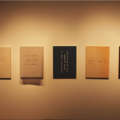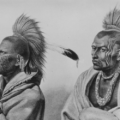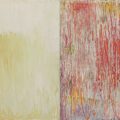In Which The Critical Flame Dedicates One Year to Women Writers and Writers of Color
Women writers and writers of color are underserved and undervalued by the contemporary literary community. The phenomenon has been well documented by critics such as Roxane Gay and Ruth Franklin, and by organizations like VIDA: Women in Literary Arts (n.b. I am a member of the VIDA board). This disparity deserves greater attention from academics and social scientists, who could at least bring some much-needed rigor (and funding) to bear. It is vital that we uncover the mechanisms that produce this disparity. You can’t fight what you cannot see, as the adage goes.
What we can see today are the outlines of a culture still dominated by white male figures, and by the presumption of their essential literary merit, everywhere from major publishing houses to small literary journals. As far as mainstream literary culture is concerned, white males are the default. They continue to personify the sublime human person, accessible to all readers, while other writers—women, African Americans, latinos, etc.—are presumed to relate an incomplete version of life, narrowed by their lack of access to this white male universality.
This is all disappointingly banal. Today’s patterns of exclusion echo the ones we find all throughout our society, with little change over the last three decades. Regardless of what some pundits might argue, we are not post-race or post-men; we are not post-anything today except, I sometimes fear, reasonable hope.
In his iconic address, “This Is Water,” David Foster Wallace speaks about the reflexive consciousness of our perceptions and values: the awareness of a choice between our culturally-mediated default interpretation of the world, and something else. When we are at our best, that something is full of empathy, humanity, and compassion. But, the ability to choose our own value-filter exists only when we are aware that there is already a default, and that there is a choice. If this is so, then it seems that either the literary community has not realized the choice yet, or has chosen not to change. I’m not sure which is more disheartening.
Silence on this literary disparity has not been the problem over the past few years. Inertia has. Many editors seem immobilized by their options: either admit their failings and allow a bruise to the ego, or brush off the critique with grand claims about quality and editorial judgment. In one iteration, an unappealing act of self-flagellation that may well harm their own publication by alienating certain cultural power centers. In the other, adherence to a relatively painless status quo. Duty in conflict with conscience creates a difficult choice, even for the most moral person.
However, as I’ve written before, nothing will change if people do not act morally within their sphere of control. So, while The Critical Flame may not be a powerhouse of the literary world, we have yet decided to embark on a project that will help our readers, at the very least, perceive and evaluate the literary landscape differently. If there is a cycle of criticism / reviews, book sales, and publishing trends that perpetuates the unjust inequalities we’re seeing today, then CF will act in some small measure to break it.
Beginning with the May 2014 issue, The Critical Flame will dedicate one year of its review coverage wholly to women writers and writers of color.
CF will continue to publish well-written, insightful, long-form critical essays and reviews, all of which will cover women writers and writers of color, just as we did (without any advance planning) in the current issue.
I see no conflict between duty and conscience. CF is small, independent, and all-volunteer: our livelihoods do not depend on its financial success, so we are freer than some others (capitalism, literature, and marginalization—consider that a call for papers, ye writers). Also the often-cited dichotomy between quality and equality is, to my mind, bullshit. There are more good books than could ever be covered by any single publication; every issue’s selection of titles is just as much a result of luck, networking, and taste as it is of quality. This project presents a great opportunity to publish in-depth essays about undervalued writers, books, and traditions—what could be more exciting for a literary editor?
But this project will not succeed without the help of our contributors; and no doubt some of our readers will have feedback, questions, and concerns as well. Please feel free to get in touch via email. We look forward to hearing from you.
Best regards,
Daniel Evans Pritchard
Editor
About Daniel Pritchard
Daniel E. Pritchard is the founding editor of The Critical Flame.





